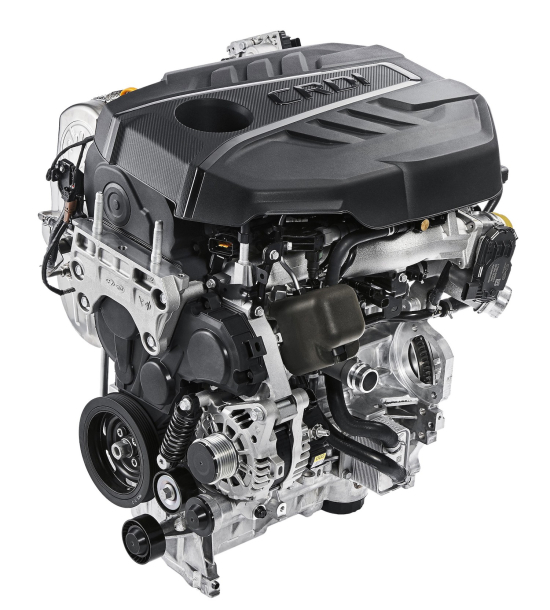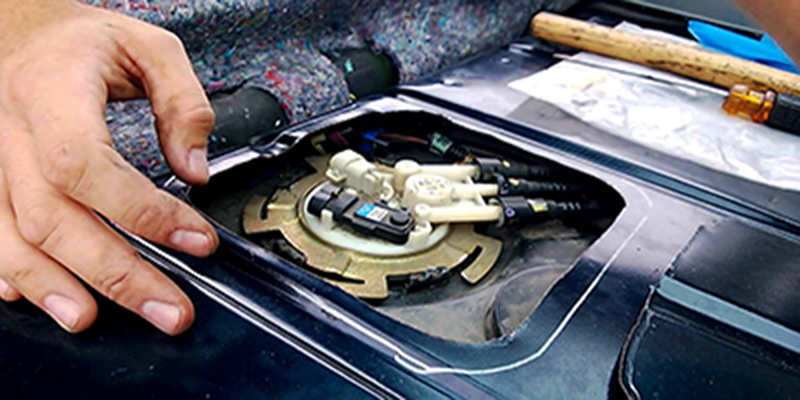Bad Fuel Pump The fuel pump’s job is pretty self-explanatory: to pump fuel from the gas tank to the engine. So it’s a no-brainer that malfunctioning is bad news. It’s important to familiarize yourself with the
warning signs of a faulty fuel- pump—that way you can address any problems before it’s too late.
Symptoms
- Engine Sputters at High Speeds.
- Rising Temperature.
- Fuel Pressure Gauge.
- Loss of Power When the Vehicle Is Under Stress.
- Surging.
- Decreased Gas Mileage.
- Engine Will Not Start.
- Check Engine Light Illuminates.
- Thick Black Smoke from Exhaust.
- Spark Plugs Will Die Sooner.
Engine Sputters at High Speeds

One of the best indicators of a failing fuel pump is found on the road while driving your car at a consistently high speed. If the vehicle suddenly sputters and then resumes regular performance, there may be something wrong with the fuel pump. This engine sputtering happens because the pump is struggling to supply a constant stream of fuel to the engine at the proper pressure.
Rising Temperature

The temperature of the car can predict a fuel pump emergency. Pay attention to your temperature gauge; if the heat rises and the car stalls, this may mean the fuel pump motor is having problems. If it continues to stall out, this is a clear sign that the f-pump may be starting to deteriorate and needs to be replaced.
Fuel Pressure Gauge

The fuel pressure gauge shows how much fuel is getting to the engine. You can check the gauge while someone else is revving the car. Check the owner’s manual to see how much pressure should be exerted when the pump is operating properly—anything less than that is a signal that your f-pump needs immediate attention.
Loss of Power When the Vehicle Is Under Stress

A car is put under stress when climbing a hill or hauling heavy cargo. In these situations, the weakening elements of the fuel pump will start to cause trouble and the pump will be unable to keep up with the vehicle’s fuel demands, leading to a loss of overall power.
Surging
Sometimes a vehicle will be moving along normally at a consistent speed and then, out of nowhere, it will pick up and surge forward as if the gas pedal had been depressed. This is caused by irregular resistance within the fuel pump motor.
Decreased Gas Mileage

Always take notice of how often you’re fueling up your car. Fuel pumps have a relief valve; if the relief valve is failing to open, more fuel than necessary will flow into the engine system. If your vehicle typically gets decent gas mileage and then suddenly becomes a gas hog, there could be an emergency under the hood.
Engine Will Not Start

Drivers who ignore the warning signs above will eventually end up with an engine that refuses to start. When a fuel pump completely malfunctions, fuel cannot reach the engine upon ignition. If this happens, the engine will crank and rev but never catch. To diagnose a fuel pump malfunction, check for a blown fuse and/or low pressure in the fuel line.
Check Engine Light Illuminates

Fortunately, modern cars are riddled with sensors that can detect any number of problems as they happen. Among those sensors is a fuel pressure sensor placed intelligently near the fuel pump. If there is any irregularity detected, the sensor sends a signal to the ECU, which illuminates the Check Engine Light.
Bad Fuel Pump Thick Black Smoke from Exhaust

Vehicles don’t usually excrete black smoke from their exhaust unless they are run on Diesel fuel. If your gasoline-run car excretes such smoke, there is usually some trouble in your engine. Among the causes of black smoke is failing.
Spark Plugs Will Die Sooner

A faulty f-pump will disrupt the inner workings of the engine. The biggest damage happens in the cylinder itself and the smallest components take up the most abuse. Yes, the spark plugs are spoilt before their time. So, if you feel your spark plugs have to be replaced too soon.














[…] Efficiency Guide, Drag or wind resistance is the main cause of high fuel consumption. Learn how to save fuel by driving behind a larger vehicle and using your vehicle’s inertia to […]
[…] the Sportage’s all-around quality. However, many rivals have more cargo space and get better gas […]
[…] to be driven between oil changes, and they often have additives to help keep the oil cleaner, longer. It’s also more stable at higher and lower temperatures than mineral […]
[…] your vehicle can also help keep it operating in an efficient manner. This translates to better fuel economy and better safety. It can also reduce the chance of breakdowns in the […]
[…] of factors that we will be looking into in greater detail in the next section. Suffice it to say, it is best to understand the 2 types of synthetic oil […]
[…] exclusive to fuel injector issues. Lower gas mileage can be a result of spark plug misfiring, bad air filters, incorrect tire pressure, and more. You shouldn’t immediately assume that your fuel […]
[…] thick grey cloud from your exhaust pipe is usually a sign that your car is burning oil. Once oil escapes it can burn off as grey smoke from various hot points around the engine. The […]
[…] the type of fuel used, the engines are also divided on the basis of a lot of things, such as the presence of a spark plug in Petrol engines and a fuel injector in Diesel engines. We also know that lighter […]
[…] Older people and those with underlying medical problems like cardiovascular disease, diabetes, chronic respiratory disease, and cancer are more likely to develop serious illnesses. Covid0-19 is a type […]
[…] any corrosion you find with a battery cleaning solution or baking soda and water […]